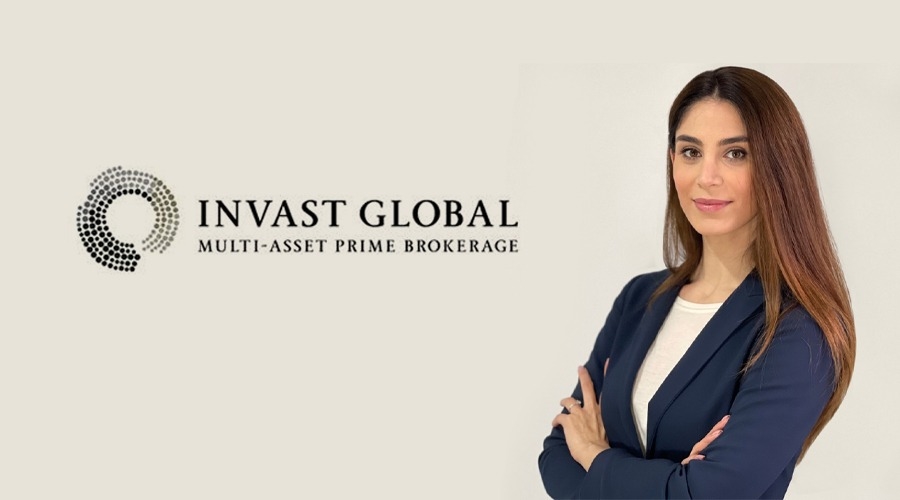Gender diversity has remained a focus area for many sectors and the trading industry is no exception. Over the years, we have seen women executives taking charge of the brokerages and many are heading crucial business roles. But, is it enough?
Riana Chaili, who is the Managing Director of Invast Global, recently spoke with Finance Magnates about the current situation of women leadership in the forex and CFDs industry and the importance of more gender diversification.
1. Can you please tell our readers a little bit about your industry background?
I started my career on the dealing desk of B.O. TradeFinancials, the European leg of a UK-listed fintech platform provider, before eventually moving to the position of Head of Brokerage based in Limassol. From there, I moved to a role at IC Markets, a leading ASIC regulated broker. In less than a year, I advanced to the Chief Deal position. For over three years, I ran its trading desk before I accepted the role with Invast Global as Managing Director of its Cyprus office. Invast is a top-tier Prime Brokerage so it was a brilliant opportunity.
2. You have held a leadership role at several brokerages. How do you think the industry has changed over the years?
Constant innovation is the main driver of change in the modern forex exchange (FX) industry. This, along with technological developments seen in recent years, has been vital for sustained industry growth. Like many other industries and sectors, the COVID-19 pandemic significantly accelerated the implementation of digital tools in financial services.
While there is still a place for traditional financial services, customer expectations and preferences are changing. A substantial proportion of customers prefer to engage with financial institutions via apps, communicate through chats and prefer to use their smartphones to do almost everything, from banking to trading. The availability of mobile applications and online experiences is now increasingly important to customers. This has become a key focus at Invast Global. We invest heavily in technology in order to streamline processes and to ensure our clients have the best trading experience possible.
3. Do you think there is enough women representation in the financial services industry?
Unfortunately, the numbers speak for themselves. A Mercer study of 1,100 organisations revealed that only 23% and 29% of executive and senior management roles were filled by women. It simply comes down to the fact that fewer women make it to the top of their respective fields. In my opinion, the most crucial first step is simply keeping women in the workforce. The main problem, I believe, is that women who want to stay in the workforce are dropping out. All too often the burden of home life and raising children falls to women. We need to make our partners, real partners. Women do three times more housework and childcare than their partners even when both work full time. Therefore, they are the obvious choice when someone needs to drop out and stay at home. As a society, we should normalise fathers taking more responsibility in home life and flexible hours.
4. What is the importance of gender diversification in the finance sector? How do you think woman leadership can change the course of the industry?
Getting more women into the financial services industry should be at the forefront of business leaders’ minds. Workplace gender diversity helps increase productivity and creativity, while improving performance and staff retention. Various studies found a direct correlation between gender diversity on executive teams and profitability.
Women bring different perspectives, skills and experiences. Empathy, intuition, compromise and compassion are skills more frequently displayed by women. In the past, these may have been viewed as soft skills but now they are viewed as increasingly necessary in the workplace.
I have found that while financial services have historically been a male-dominated industry there appears to be a shift towards more females in the workplace. Taking Invast Global as an example, our client base is increasingly diverse, so it makes sense to have an equally diverse leadership team making decisions.
5. And finally, where do you think the finance industry is going in terms of diversification? What trends can we expect to see in finance in the short and long term?
In financial services, one strategy that can encourage change is to create multi-cultural, diverse teams. Moving forward, I see companies integrating this philosophy into their hiring and general business practices to ensure that diverse perspectives are heard. Making it safe to propose novel ideas, giving team members decision-making authority, sharing credit for success and implementing feedback from the team are all actionable strategies I believe will make a difference moving into 2022 and beyond.
In the past year, it has become more apparent that clients are becoming increasingly sophisticated in their trading strategies, and their overall FX industry and market knowledge. This has driven client focus away from purely comparing Prime Broker spreads and mark-ups, and towards examining and appreciating the competitive costs of execution. As a result, there is more value placed on providing solutions to execution drawbacks concerning slippage and latency. I fully expect this trend to continue into 2022, and Invast Global is in a prime position to adapt to this.





















